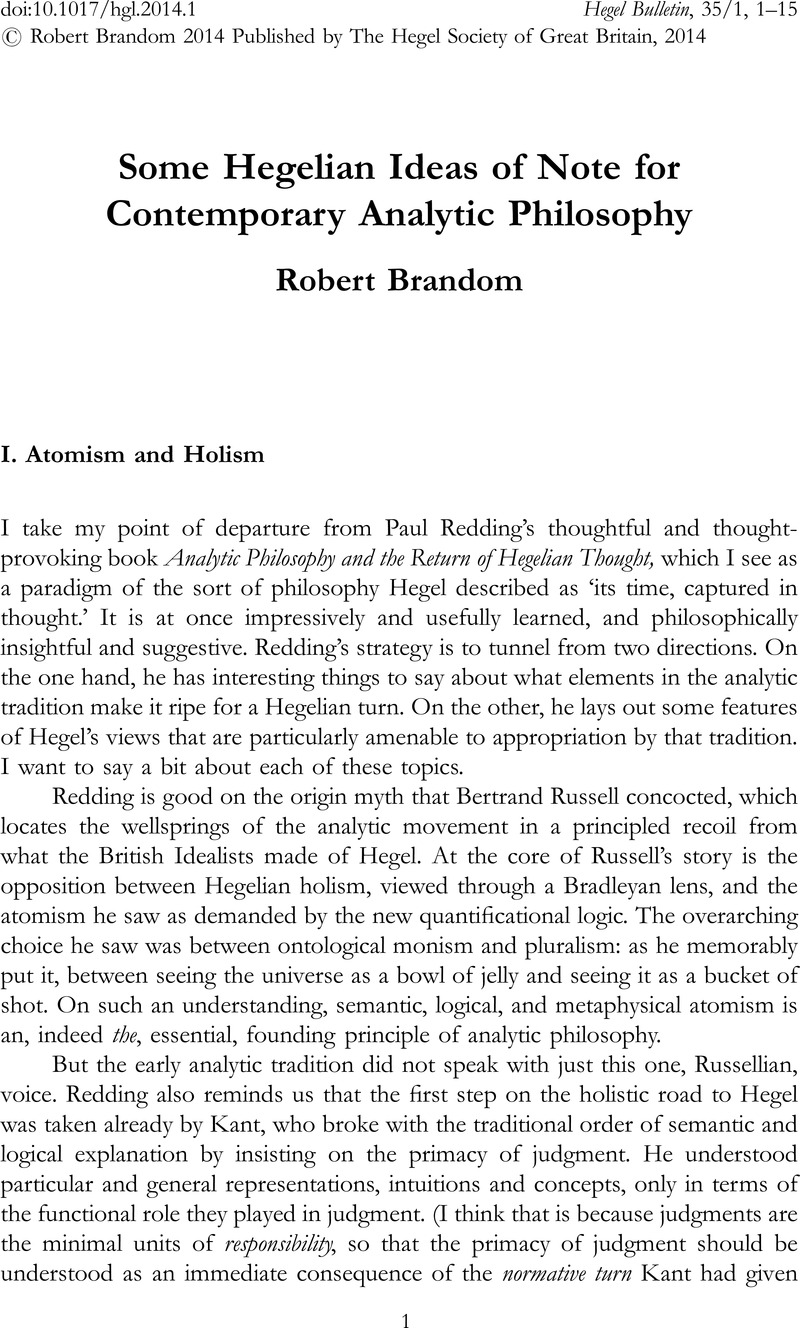Article contents
Some Hegelian Ideas of Note for Contemporary Analytic Philosophy
Published online by Cambridge University Press: 24 March 2014
Abstract

- Type
- Articles
- Information
- Copyright
- Copyright © The Hegel Society of Great Britain 2014
References
1 Pp. 306-307 (§107) in: Wilfrid Sellars: “Counterfactuals, Dispositions, and Causal Modalities” In Minnesota Studies in the Philosophy of Science, Volume II: Concepts, Theories, and the Mind-Body Problem, ed. Herbert Feigl, Michael Scriven, and Grover Maxwell (Minneapolis: University of Minnesota Press, 1958), p.225-308.
2 Sellars, W. (1948) “Concepts as Involving Laws, and Inconceivable Without Them.” Philosophy of Science 15: 287–315.
3 I take some initial steps towards one way of doing this in the last three chapters of Between Saying and Doing. Although the point is not developed there, as Jaroslav Peregrin has shown, the incompatibility semantics that is introduced there can in large part be translated into possible world semantics, by trading minimal incoherent sets of sentences for maximal coherent ones. I also make an initial gesture in this direction in “Modal Expressivism and Modal Realism: Together Again,” which is Chapter Five of From Empiricism to Expressivism: Brandom Reads Sellars, forthcoming in 2014 from Harvard University Press.
4 Phenomenology of Spirit, §652.
5 Introduction to Lectures on the Philosophy of History, published separately as Reason in History, tr. R.S. Hartman 1953, p. 13; Suhrkamp Hegel edition, volume 12, p.23.
6 Philosophical Investigations, §95.
- 14
- Cited by


